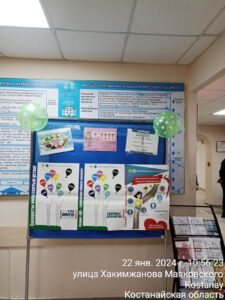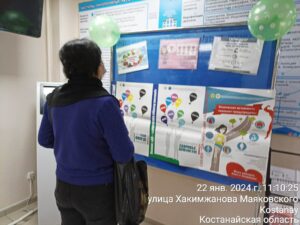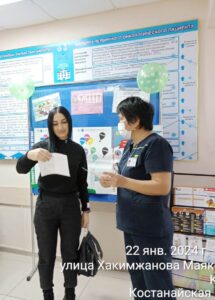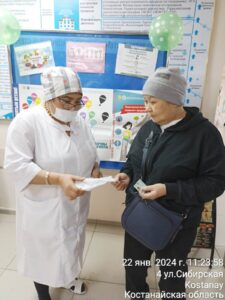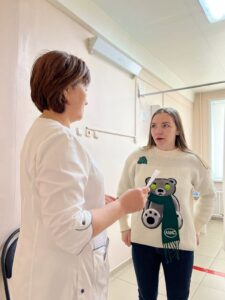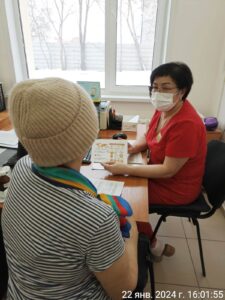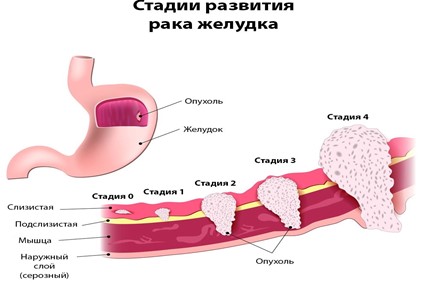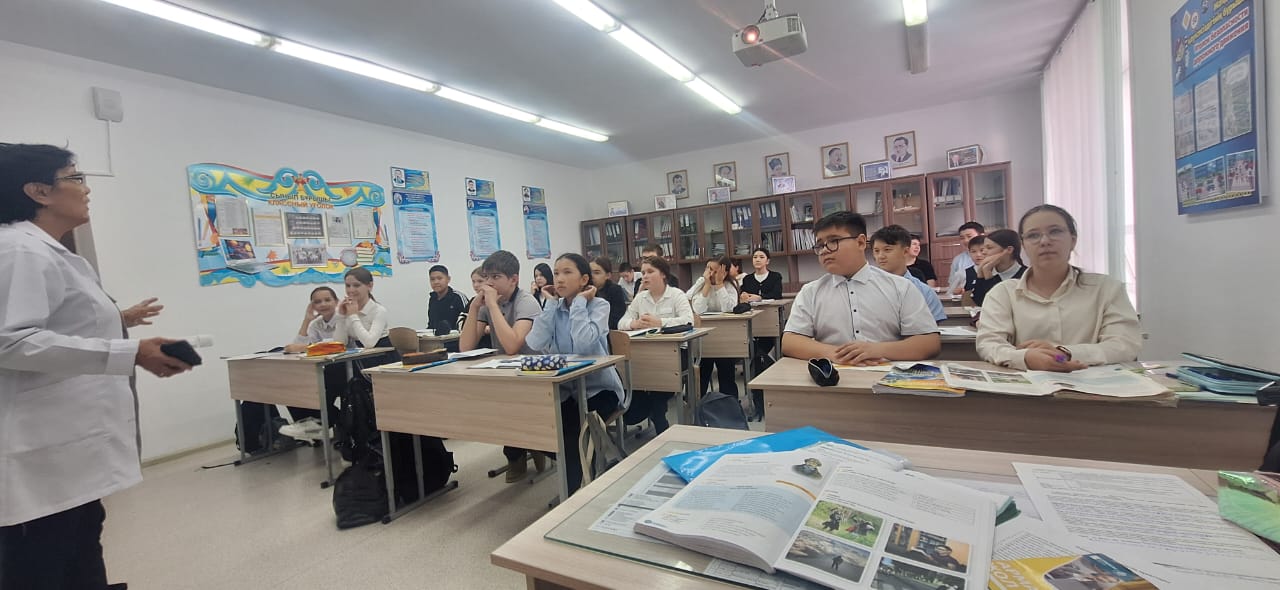
An open Day dedicated to the International Week of Cervical Cancer Prevention was organized in the KGP “Polyclinic No. 2 of Kostanay” on 22.01.2024.
In the lobby of the polyclinic, the nurses of the Department of prevention and socio-psychological care Abilkasova G.N., Abieva L.S., distributed booklets, memos, conducted conversations with patients on the topic: “Prevention of cervical cancer”, “Early detection of cervical cancer”. We sent patients who wanted to consult a gynecologist.
The main purpose of this event is to raise public awareness about the prevention and early detection of oncological diseases, increase cancer awareness of the population, inform about the importance of screening programs, as well as the formation of a responsible attitude to their health.
The visitors received a free consultation with a gynecologist, underwent cervical cancer screening in the women’s examination room, The nurses of the pre-medical and women’s examination rooms of the Department of prevention and socio-psychological care conducted conversations about the importance of timely screening, thanks to which it is possible to detect diseases at an early stage and how important it is to undergo an examination room once a year.
Currently, an important preventive measure for cancer is screening of the attached population, which is now carried out in every polyclinic in the city. What is screening?
Screening is a preventive medical examination of healthy people of a certain age to identify risk factors and diseases in the early stages. Screening examinations help to identify the disease at an early stage or a predisposition to it. Cancer screening is also carried out for certain types of cancer or precancerous diseases. This is done in order to identify signs of the possible presence of certain types of cancer, or precancerous lesions at the stage preceding the development of symptoms. If pathological processes are detected during screening, patients are referred for further diagnosis to confirm or exclude the diagnosis, after which, if necessary, they are prescribed specialized treatment. For example, for women of fertile age (that is, women of childbearing age), an early diagnosis for cervical cancer is carried out. All these surveys are free for the public.
The following recommendations for the population have been identified as an exception to risk factors:
-
abstaining from tobacco use;
-
maintaining the body mass index;
-
a healthy diet including fruits and vegetables;
-
regular physical activity;
-
abstaining from the harmful use of alcohol;
-
vaccination of representatives of certain population groups against HPV and hepatitis B;
-
exclusion of ultraviolet radiation (primarily as a result of exposure to sunlight or artificial tanning devices);
-
passing a regular screening examination.
